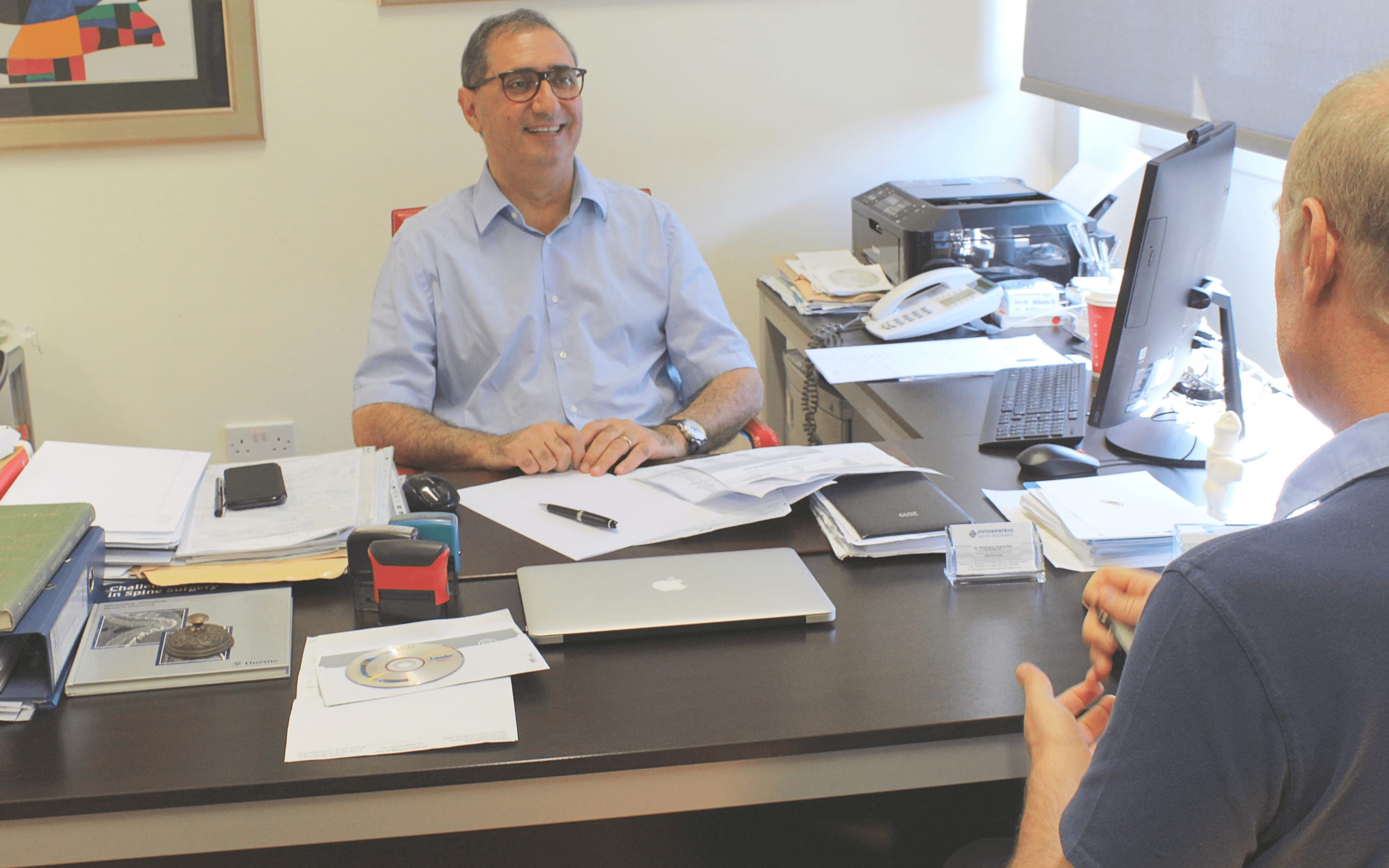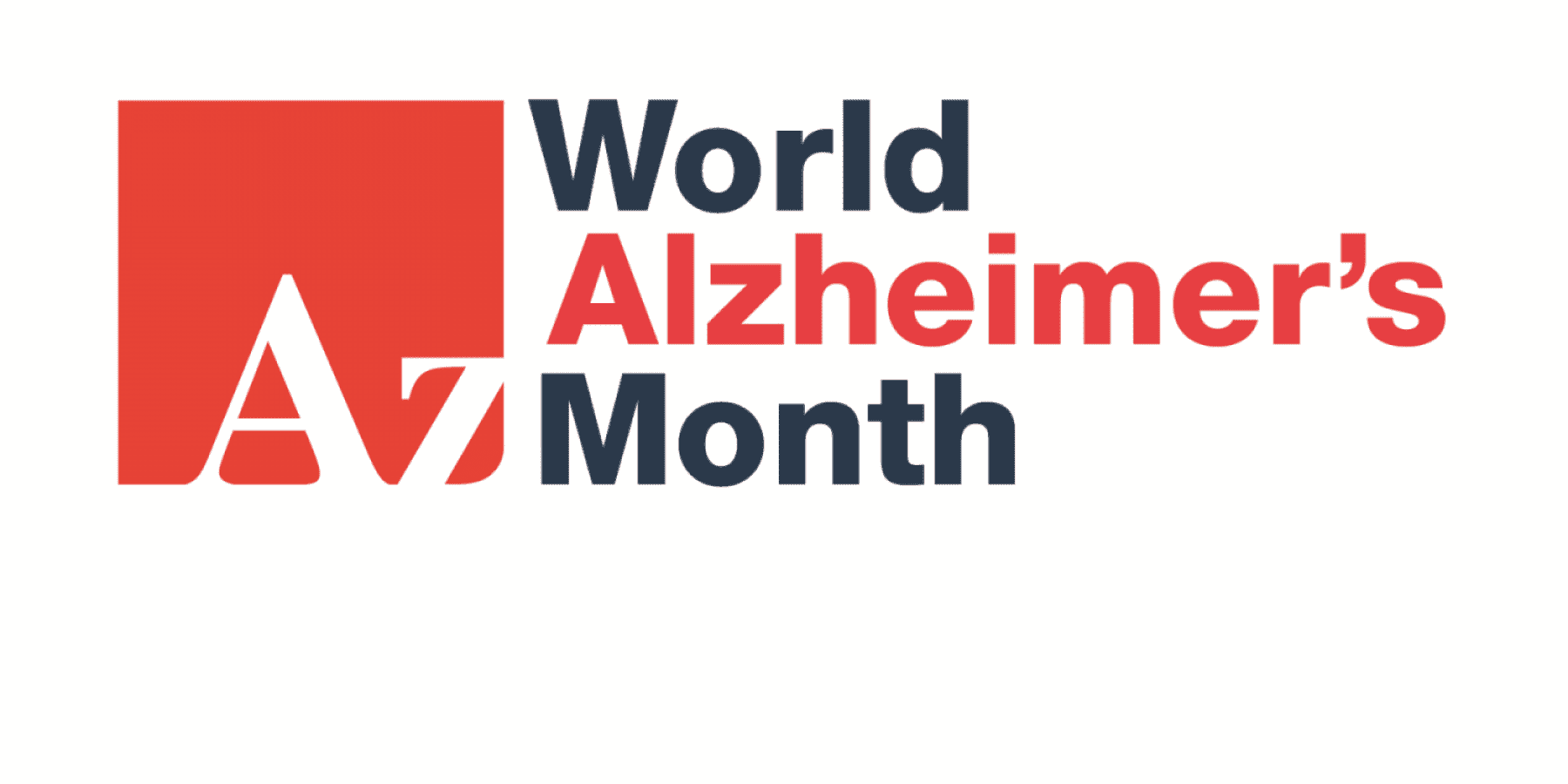On the occasion of the World Alzheimer’s Month
by George Sycallides, Director of Communications
20 September 2019

Theodoros Kyriakides is a Professor of Neurology at the UNIC Medical School. He is the MBBS Life Control Module Convenor (CS Year) and the Curriculum Lead for Neuroplus (P Year)
Professor Kyriakides, where does Alzheimer’s disease derive its name from?
Alzheimer’s disease is named after the German psychiatrist and neuropathologist Alois Alzheimer (1864 –1915) who is credited with describing in 1906 the symptoms and brain findings (brain atrophy) of a patient with progressive forgetfulness and change in personality, and which is considered to be the first documented case of dementia of the Alzheimer type.
So what is dementia in general terms, and how many different types exist?
Dementia is usually a progressive neurodegenerative condition, which means that there is a gradual loss of neurons in various parts of the brain resulting in a loss of cognitive function. Cognitive function includes some of the abilities that are particularly well developed in humans such as planning, thinking, remembering, feeling happy or sad, responding emotionally and making friends. There are several causes of dementia but, by far, the most common is Alzheimer’s disease. Alzheimer’s disease is characterized by the deposition in the brain of an insoluble neurotoxic substance called Aβ amyloid, as early as 20 years prior to the onset of symptoms. Aβ amyloid sets off a cascade of pathogenic events, resulting in a loss of synapses (contacts of communication between neurons) and neurons themselves. There is gradual brain atrophy, especially involving the memory creation component of the brain, called the hippocampus. The second most common type of dementia is Vascular dementia which results in a gradual accumulation of vascular damage (infarctions) in the brain as a result of chronic hypertension, high cholesterol, diabetes mellitus and a genetic predisposition. Quite often the two pathological substrates, Aβ amyloid deposition and cerebral infarctions, occur in the same patient; therefore we say that the patient has a mixed dementia. Other less common dementias include Lewy Body dementia and Frontotemporal dementia. Each dementia has its own clinical characteristics but they all cause a gradual breakdown of the social functioning and personality of the patient.
Is Alzheimer’s disease hereditary?
In under 10% of Alzheimer’s patients the disease is hereditary, with an autosomal mode of inheritance (every offspring has a 50% chance of inheriting the condition) but even in the sporadic cases, genes may play some role.
Are there any warning signs, and can we reduce the risk of developing Alzheimer’s?
Alzheimer’s disease is often picked up by the family as “something is not quite right” before an outsider or even a doctor can suspect it. Early symptoms include repeated questioning about factual information, forgetting recent events or appointments, getting geographically lost, a feeling of apathy and a general loss of interest in family affairs.
What is the percentage of people affected in Cyprus and what are the statistics worldwide?
Globally one patient is diagnosed with dementia every three seconds, the vast majority with Alzheimer’s disease. In Europe, there are 12 million patients with Alzheimer’s disease, and by 2030 the number of patients will rise to 14 million. The current cost of dementia care is estimated to be 200 billion Euros per year, and by 2030 the estimated cost is expected to rise to 250 billion Euros. There are no precise figures for Cyprus, but the situation is probably similar to other European countries.
Is there any chance of recovery from Alzheimer’s?
Once Alzheimer’s disease manifests itself, it is invariably a progressive disease, the trajectory of which varies from patient to patient. At present, once the disease starts, there is no effective cure although there are a number of medications which may slow down the disease’s trajectory.
How can I support and behave around a family member with Alzheimer’s?
Patients early on in their disease may be aware of their cognitive decline, and they need to be supported with a positive attitude. Making lists for shopping and frequent reminders in a casual way are helpful. Patience is a virtue, and emotional support by the loved ones is very important. Even though the patient may not remember factual details about a family gathering, or may not be able to actively participate, their emotional experience is pleasant and soothing.
Are there any benefits of visiting someone in the late stages of Alzheimer’s?
Yes, as I mentioned before, patients in the late stages of the disease recognise close relatives only, and feel great reassurance and calmness by their presence. Unfortunately, towards the terminal stages of the disease, they stop recognising close relatives too, but they respond better to “vaguely” familiar faces than to strange faces.
What is the latest research on Alzheimer’s, and can we end on a positive note?
A lot of research is been done throughout the world to effectively deal with this pandemic.
Perhaps the most important recent study, in 2019, is from University College London which found that the risk of developing Alzheimer’s disease can be reduced by 60% if, after the age of 50, Life’s Simple 7 are followed. These are:
- Controlling high blood pressure
- Reducing high cholesterol
- Reducing high sugar
- Getting physically active
- Eating a healthy diet
- Losing weight and
- Stopping smoking
Dr Kyriakides, thank you for your time

